Ambassador Fang Qiu: China to boost investment in Trinidad and Tobago
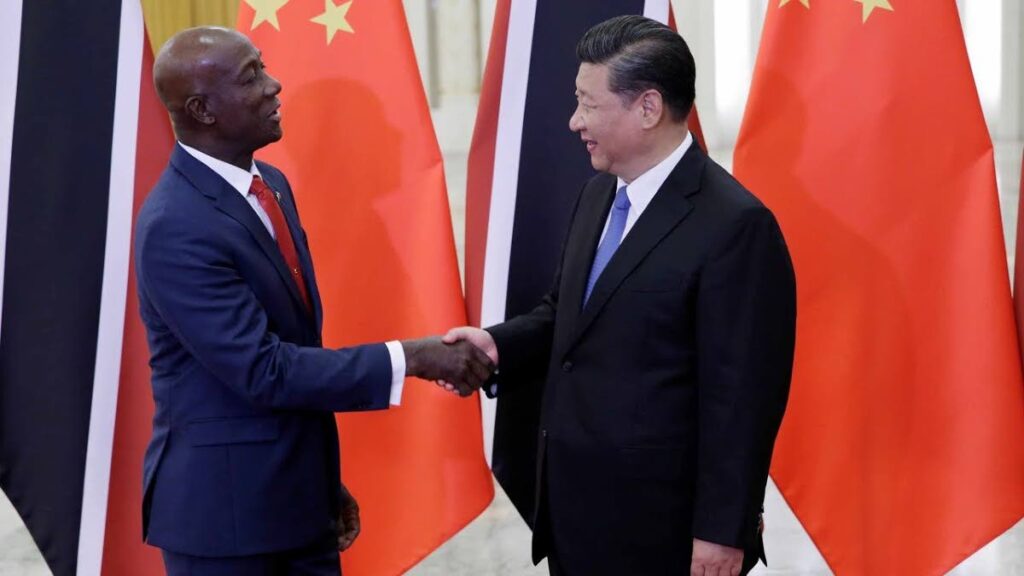
TT and China have had a long history and bilateral relations.
Chinese ambassador Fang Qiu in an interview with Business Day, discussed several matters about the two countries co-operation. Among those included recovery from the covid19 pandemic, trade and investment, the ease of doing business and the negative impact of the ongoing Russia/Ukraine war.
Most notably is China’s interest in TT through its Belt and Road Initiative (BRI) which has been expanded to the region.
Qiu said the under the BRI framework, more co-operation and socio-economic development are expected in areas of agriculture, green energy, digital economy and information, communication and technology.
China was TT’s second-largest trading partner last year, he said with a total trade volume of US$1.1 billion and export to China reached US$647 million.
Qiu expected these figures to grow exponentially when the Phoenix Park Industrial Estate begins operations.
Ambassador, how do you evaluate the development of China-TT relations?
China and TT are true friends, and now the Sino-TT relation is in its best times in the history. I would like to recall the historical visit of Chinese President Xi Jinping to TT in 2013, during which he said good friends feel close to each other even when they are thousands of miles away. Although separated by vast oceans, the two peoples constantly enjoy a profound traditional friendship, which has always been based on historical bond and a shared value of mutual respect, equity, and win-win co-operation. The two countries can always count on each other on issues concerning our respective core interests and matters of major concern.
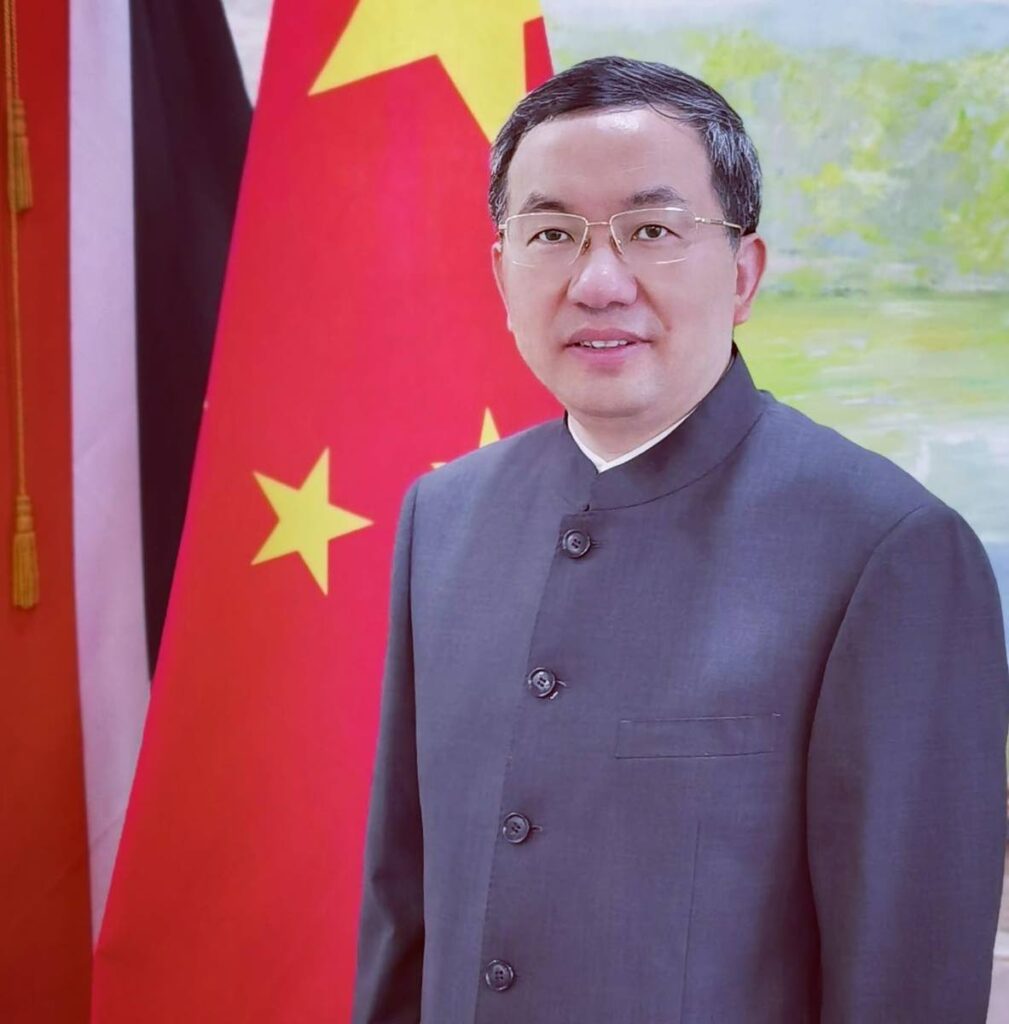
Last year, President Xi Jinping had a phone conversation with Prime Minister Dr Keith Rowley and reached extensive consensus on further deepening our practical co-operation in various fields, which ushered in a new chapter of our bilateral relations. In the wake of the covid19 pandemic, China and TT have been reaching out to each other with a helping hand and fighting against the virus shoulder to shoulder. It is a vivid manifestation of our strong bond of amity and has in turn further strengthened our time-honoured friendship.
Countless examples of the excellent relations between China and TT are to be listed. As the Ambassador of China to TT, I would devote all of myself to the development of this relationship which has been cherished for centuries, fully implement the important consensus reached by our leaders and bring more tangible outcomes to our peoples with the view of building a community of shared future.
When it comes to the practical co-operation, under the circumstances of the covid19 pandemic, what are some areas of co-operation China is looking forward to with TT?
Practical co-operation between the two countries has been progressing smoothly with fruitful outcomes following the direction set by our two leaders. Despite the challenges imposed by the pandemic, practical co-operation between the two countries has witnessed substantial advancement. China has now become the second-largest trading partner of TT, with a total trade volume of US$1.1 billion in 2021. The export of TT to China reached US$647 million, registering a year-on-year growth of 93 per cent. The Phoenix Park Industrial Estate, a flagship project under the Belt and Road Initiative (BRI) to be completed this year, will undoubtedly provide new impetus into the socio-economic development of TT.

China-TT relations have benefited both countries and peoples, becoming a paradigm of relations between countries of varying sizes and social systems. China stands ready to work closely with TT to put into action the important consensus reached by our leaders and promote the high-quality development of BRI co-operation. China will also enhance co-operation with TT under the framework of the Global Development Initiative, which was proposed by Chinese President Xi Jinping and won wide support from around the world, with an expected focus on agriculture, green energy, digital economy, ICT, etc.
There have been some recent visits by yourself at the Ministry of Trade and Investment in the manufacturing sector – is China thinking about increasing investment to TT, including in sectors like agriculture and food processing?
Last year, our embassy successfully initiated the first China-TT Investment Co-operation Forum, with a view to opening a new window for, and to new impetus to the better understanding of policies and market conditions between the business communities of both countries. The embassy also successfully facilitated the debut of ten TT enterprises at the fourth China International Import Expo, with a signing of commercial contracts with Chinese partners as well as excellent showcasing of TT’s advantage in manufacturing and export. What’s more, the soon-to-be-completed Phoenix Park Industrial Estate will house several Chinese enterprises in light manufacturing, logistics and other industries, which will serve as an innovative platform for China-TT investment co-operation and bring more business opportunities.
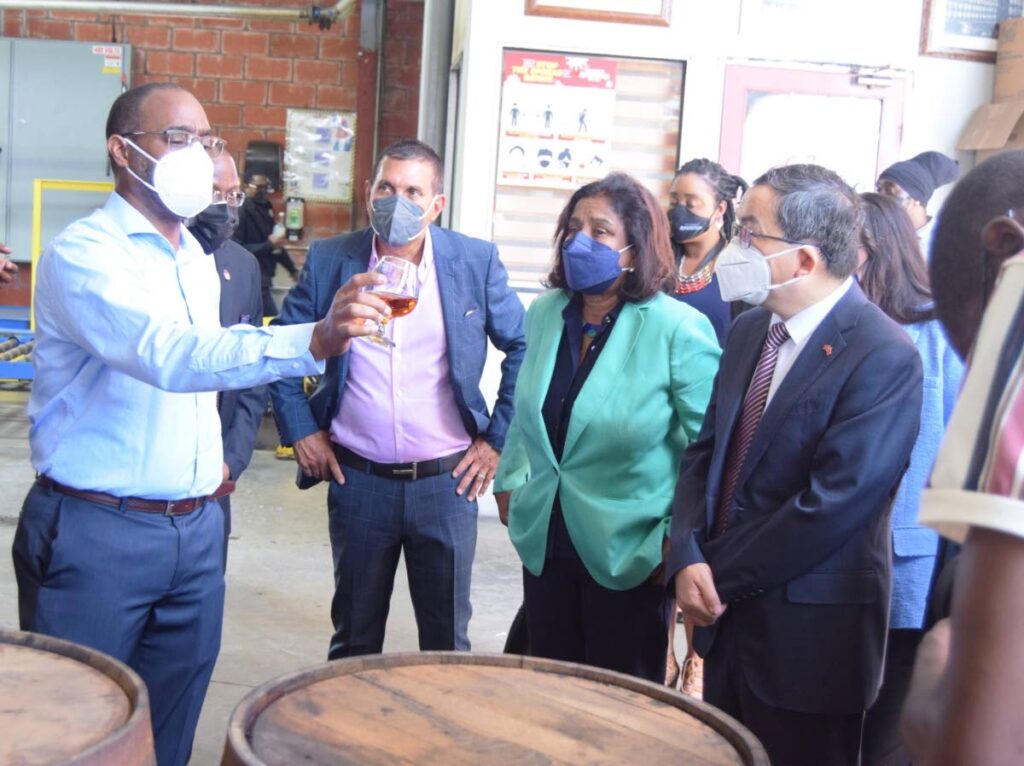
Looking into the future, greater efforts will be made this year to expand investment, including promoting the Trade and Investment Convention hosted by the TT Manufacturers’ Association and holding the second China-TT Investment Co-operation Forum. In this regard, I would like to take this opportunity to welcome more local enterprises to fly the TT flag high through their participation at the fifth China International Import Expo in November, tapping the potential of co-operation in trade and investment and strengthening business links with China and TT as well as the rest of the world.
China has been successful in attracting foreign investment and accumulated rich experience in improving its business environment since its opening-up. What is your opinion of TT’s performance in the ease of doing business? Do you have some suggestions for TT to attract businesses?
Please let me applaud the determination and efforts made by TT in improving its business environment, with the introduction of a series of policies and measures. Since my arrival in late 2020, I have witnessed the enactment of the law on special economic zones, the implementation of the business process re-engineering (BPR) recommendations and an automated construction permitting system, among a set of reform initiatives on ease of doing business. Undoubtedly, these measures will further improve the business environment of TT and its attractiveness for investment. As a close partner, China rejoices these progresses and will encourage more Chinese investors to turn their eyes to TT.
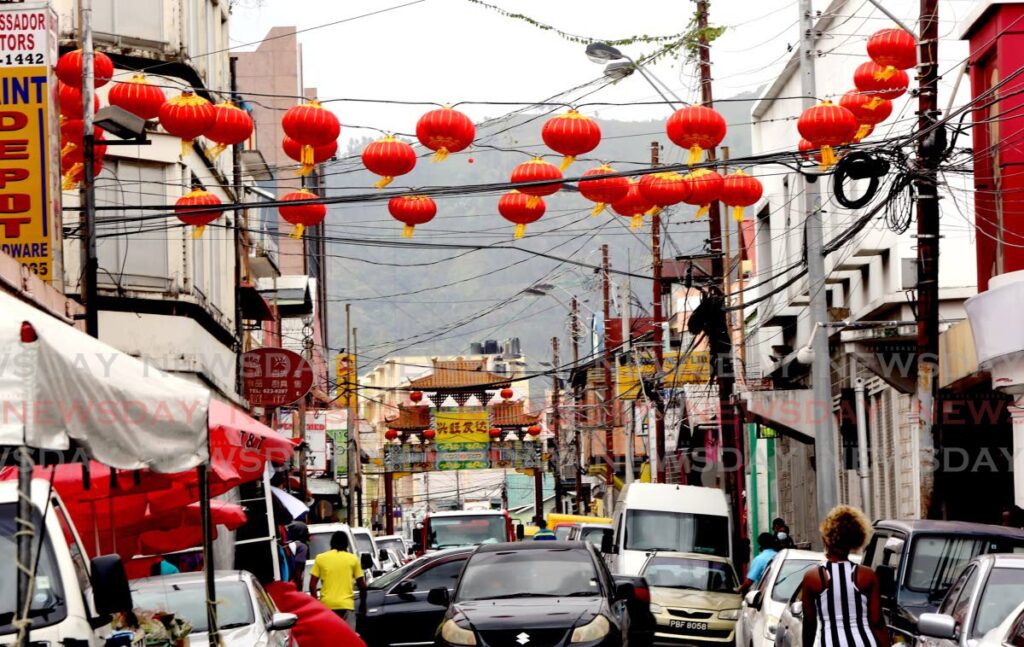
As for future development, it is worth mentioning that the covid19 pandemic has highlighted the importance of ICT and the huge potential of the digital economy. I am glad to see that concrete actions have been taken by TT to adapt to this trend of the times, which will strengthen the policy framework and promote the development of digital infrastructure. China is willing to help and is ready to share its experience with TT in these areas in order to improve the business environment and embrace a promising future together.
China and TT's co-operation ties have also been seen in culture and education. Could you tell us about some cultural and educational programmes available and are there any plans to strengthen ties between both countries using these two areas?
As an ancient Chinese saying goes – Amity between the people holds the key to state-to-state relations. Since the first group of Chinese arrived in TT over 200 years ago, they have been living in harmony with the local people and deeply integrated Chinese culture into TT’s diverse culture, which laid a solid foundation for the development of bilateral relations.
I am mindful to see that cultural activities in various forms have been carried out in TT by a variety of civil organisations, such as the Dragon Boat Association, the Martial Arts Association, the Dai Ailian Foundation and the Chinese Steelpan Ensemble, which continuously contributes to the development of cultural exchanges between China and TT.

The Confucius Institute at the University of West Indies, St Augustine campus, an important outcome of President Xi's visit to the country, has helped more than 3,000 TT teenagers learn Chinese. In addition, the Chinese government scholarship has sponsored a large number of TT students to study in top Chinese universities. Thanks to these endeavours, I could enjoy the pleasure of meeting many TT friends with fluent Chinese and a good understanding of Chinese history and culture. I am delighted to see that they have become a driving force for China-TT friendship.
At present, the two countries are bent on promoting closer collaboration between our universities in terms of educational and academic exchanges and co-operation. We are also working on the twinning of Shanghai, the economic powerhouse and cultural highland of China, and Port of Spain. I believe that the twinning of the two cities will add new vitality to the friendly exchanges between the two countries. China is ready to embrace a much closer relationship with TT in terms of culture, education and people-to-people exchanges.
Many TT people care about the situation of the covid19 pandemic in China. Can you give an update on how China is handling the virus currently?
Since the outbreak of covid19, China has been fighting against the pandemic with utmost efforts and successfully contained the spread of the virus at home with the trust and support of the 1.4 billion Chinese people. We are very proud to be the first major economy in the world to achieve economic recovery and positive growth.
Earlier this year, the omicron variant began to spread around the world, posing an even greater challenge to China. Clusters of cases have emerged in scattered places, including metropolises like Shanghai. With painstaking efforts, China has withstood the impact of the new round of pandemic, and after winning the battle against omicron with great sacrifice not long ago, Shanghai successfully returned to normalcy.
China's success in combating the pandemic benefits from its commitment to the principle of putting people and their lives first and the “dynamic zero-covid” policy. The policy, instead of seeking zero infection as many outsiders may misunderstand, pursues controlling the spread of the virus in the shortest time with the lowest social cost. According to the latest data released by World Health Organization (WHO), the accumulated excess mortality in China is minus 52,063, the lowest among all 194 countries listed in the WHO dataset. Such a result will be unimaginable without timely and effective control measures. The “dynamic zero-covid” policy, while being proved effective to safeguard people’s health and lives, will be adhered to and adjusted for the purpose of more precise implementation and less impact on the normal life of the people,
Could you give details about China’s role, specifically to TT, in relation to the managing the covid19 virus?
As a responsible major country, China has been committed to advancing international co-operation against covid19 and bridging the vaccine gap. To date, China has provided over 2.2 billion doses of vaccines to over 120 countries and international organisations,accounting for one-third of the total number of vaccines administered outside China.
As mentioned above, China and TT have stood closely in the fight against the pandemic. Every Chinese, myself in particular, will never forget that in the very first difficult days for China in early 2020, TT was among the first countries to offer us a helping hand. To reciprocate, China provided TT with more than a dozen batches of medical supplies through various channels to satisfy its urgent needs. It is noteworthy that China donated 100,000 doses of vaccines to TT and facilitated the procurement of one million doses when the whole world was facing severe vaccine shortage.
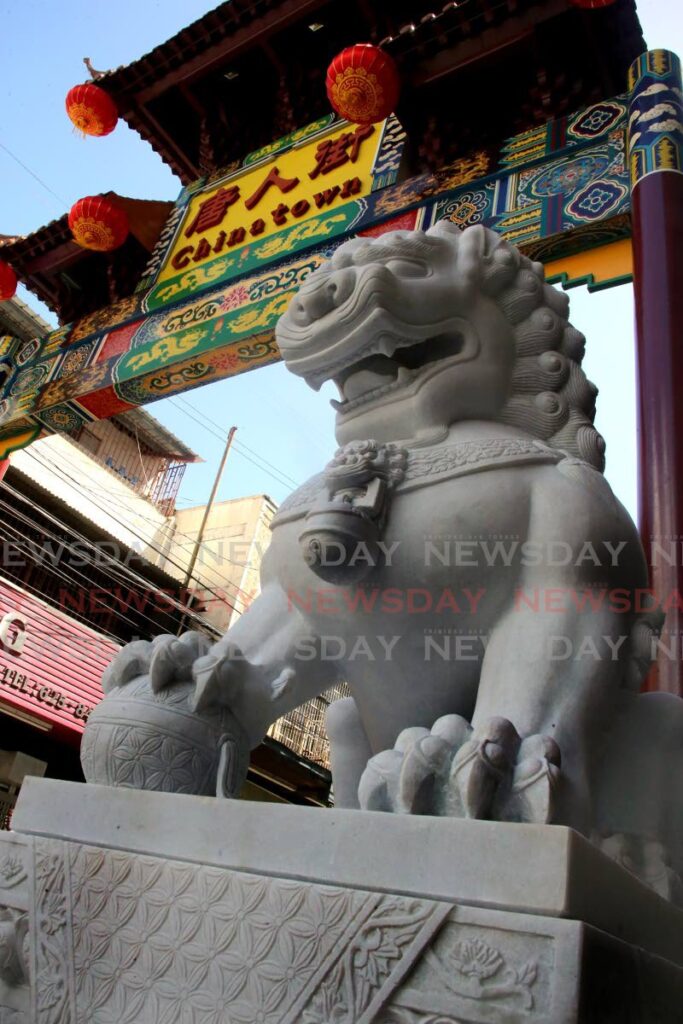
At the Foreign Ministers' Meeting among China and the Caribbean countries having diplomatic relations with China, convened in April, China announced that it will donate more anti-pandemic and medical supplies to Caribbean countries. China remains committed to working together with TT in the fight against the pandemic, to expand co-operation in the area of medical and health care, and build a community of health for our two peoples.
How does China see the Russia/Ukraine crisis affecting the world and the Caribbean in particular?
The Ukraine conflict, coupled with the sweeping sanctions imposed on Russia by the US and some Western countries, has dealt a heavy blow to the global humanitarian situation and global economy. With disrupted supply chains and declining supply of energy, food, metals and other bulk commodities, inflation in many countries was exacerbated, resulting in greater adverse impact globally.
The Organisation for Economic Co-operation and Development (OECD) predicts the Ukraine crisis will reduce global economic growth by more than one percentage point and push up overall global inflation by about 2.5 per cent. The Food and Agriculture Organization’s (FAO) food price index averaged 159.3 points in March, reaching its highest level since its inception in 1990. The World Food Programme (WFP) warned that a food crisis is now inevitable and that the number of people suffering from acute malnutrition in the world could rise to 220 million.
With respect to the financial sector, stock markets in major economies fell, and the flows of international capital from emerging economies to the US following the continuous conflict may result in further deterioration of the balance of payments and debt situation of developing countries.
The global economic turmoil caused by the crisis has affected almost all countries, including the Caribbean countries far across the ocean. Due to the heavy dependence on imports, Caribbean countries are more vulnerable to fluctuations in global commodity prices, and their efforts for working out of the pandemic and achieving economic recovery and livelihood improvement have been obstructed. We hope that all peace-loving countries can work together to end the conflict and restore the positive momentum of the global economy.
And what China has done, and will do, to ease the situation and tackle the problem?
Building a community of shared future for mankind is the core element in China’s diplomacy. When it comes to the Ukraine issue itself, China always determines its position based on the merits of the issue itself and maintains that the purposes and principles of the UN Charter should be upheld and that the legitimate security concerns of all countries should be taken seriously. China pays high attention to the humanitarian situation in Ukraine and has put forward a six-point initiative and provided Ukraine with several batches of emergency humanitarian aid.
China believes the top priority should be to stop the armed conflict between the two countries and has made unremitting efforts to this end. Shortly after the breakout of the conflict, Chinese President Xi Jinping held several video meetings with leaders of Russia and other major countries, urging the Ukraine issue to be resolved through negotiations. Chinese State Councillor and Foreign Minister Wang Yi also spoke with foreign ministers and political leaders of a wide range of countries, pushing for a diplomatic resolution to the crises. China's endeavours have helped keep the negotiations between Russia and Ukraine going on.
China firmly opposes any unilateral sanction that has no basis in the international laws. History and facts prove that sanctions are never a fundamental and effective way to solve problems, but only bring serious difficulties to the economy and people's livelihood. After all, at the end of the day, it is the ordinary people that bear the dire consequences of the sanctions.
With multiple global challenges like the ongoing covid19 pandemic and the Russia/Ukraine war, world peace and development are at stake, what does China think humanity should do to overcome the difficulties and challenges to achieve development and prosperity?
Peace and development remain the theme of our times, but don't fall from the sky. The Ukraine conflict has once again proved that, in the turbulent waters of global crisis, countries are not in their own small boats, but in the same big boat with a shared future. The pursuit of exclusive or absolute security, and the pursuit of one's own security over the insecurity of others, only leads to collective insecurity and sufferings those other countries don’t deserve. The only way out for mankind is not unilateralism, hegemony, or power politics, but to uphold true multilateralism, uphold international solidarity, and work together to overcome difficulties.
China believes that development holds the key to all problems, and security is a pre-requisite for development. The world needs to strike a balance between development and security. To this end, Chinese President Xi Jinping proposed the Global Development Initiative (GDI) and the Global Security Initiative (GSI). The GDI and the GSI derive from China’s 5000-year culture and wisdom and embody the vision of a community with a shared future for mankind. They echo the common aspiration of the international community for peace, co-operation, and development, and will undoubtedly contribute to the process of peace and development.
China attaches great importance to concerns of small developing countries like TT, which are more vulnerable to global turbulence, and stands ready to work with them to implement the GSI and the GDI to safeguard security in both traditional and non-traditional areas and to improve people's lives in pursuit of common development.


Comments
"Ambassador Fang Qiu: China to boost investment in Trinidad and Tobago"